A dog sniffing food but not eating it can be a normal and harmless behavior or a sign of a larger issue. Dog sniffing food immediately after seeing it is one of the most common behaviors. Many dogs will sniff food for a long time, even if they do not intend to eat it. But, if you notice that often, your dog smells food and walks away, there might be something wrong that you need to fix.
This behavior of any dog disinterested in food after sniffing can be observed in canines of all ages, breeds, and sizes. While it may seem strange that a dog would spend so much time sniffing food without actually eating it because most dog tends to enjoy their meal very much. There might be a few reasons why a dog behaves this way. This article will discuss those reasons and what to do in a situation like this.
Reason Behind Dog Sniffing Food But Not Eating
Dogs are usually enthusiastic eaters, so it can be concerning for their owners when they suddenly stop eating or show a lack of interest in food. A dog suddenly doesn’t like food may happen for many reasons, ranging from minor issues to more serious problems.
- Health issues or injury
- Behavioral or mental issue
- Dental problems
- Issue with food
- Your dog is just full
If you are a dog owner and feeling helpless and asking why this is happening, check if any of the following is occurring to your dog –
Health issues or injury
One of the most common reasons dog doesn’t eat right away anymore is that they are sick or injured. If your dog suddenly loses their appetite or is lethargic and seems to be in pain, it’s important to take them to the vet as soon as possible. A variety of health issues can cause a loss of appetite in dogs, including infections, gastrointestinal problems, dental issues, and cancer.
For Medication
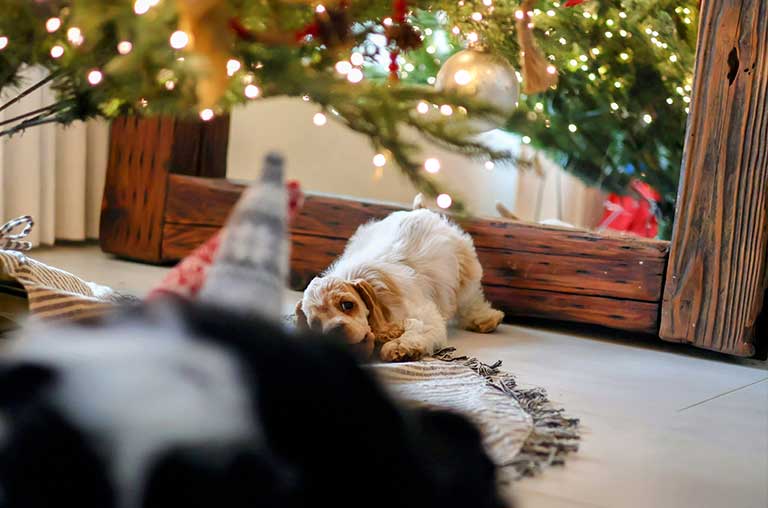
Several drugs can make your dog disinterested in food, according to the AKC. The dogs sniffing food but not eating could happen if they are on specific antibiotics, chemotherapeutic treatments, or painkillers. If a dog is under some medications can cause a loss of appetite or a change in taste perception, which may cause a dog to refuse food.
Surgery
After surgery, your dog may be experiencing pain or discomfort that makes it difficult for them to eat. This is especially true if your dog has had surgery on their mouth, throat, or digestive tract.
Aging
As dogs, age can decrease their appetite, and they may become pickier about their food. There might also arise problems like your senior dog not eating but drinking water. This may indicate various underlying health issues that require immediate attention.
Digestive issues
There’s a good possibility that your dog is in stomach pain if he or she is puking, eating grass, refusing to consume food, or whining when given belly massages. With digestive issues such as gastroenteritis or pancreatitis, a dog sniffing food but not eating problems could be seen.
Anxiety or Nervousness
Sometimes a dog sniffing food but not eating situations could happen due to anxiety or nervousness. Anxiety can cause dogs to lose their appetite, and they may not feel like eating even if food is available. If your dog is showing other signs of anxiety, such as restlessness, pacing, or panting, then it is likely that anxiety is the reason why they are not eating.
Savoring the Aroma
Dogs have a highly developed sense of smell and can distinguish a wide range of scents. When dogs sniff food, they are not just assessing the food’s quality but also enjoying the aroma of the food. Dogs derive pleasure from smelling different things, and food is no exception. So, sometimes your dog sniffing food but not eating could mean he is simply enjoying the scent.
Searching for a Better Option
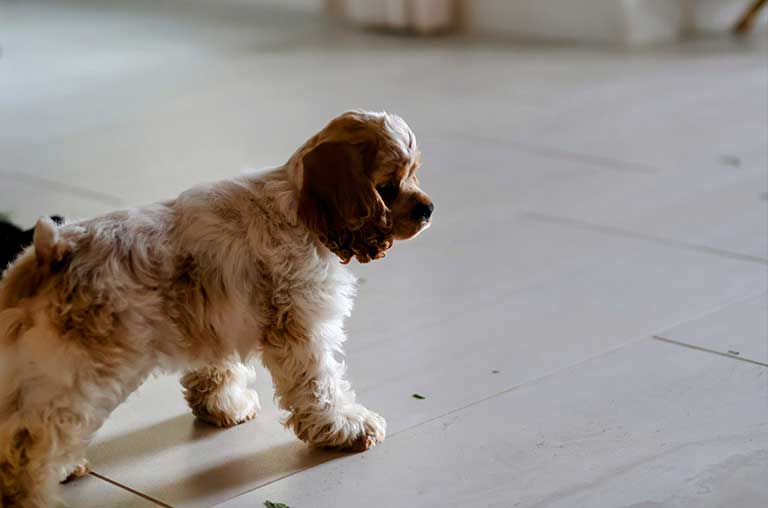
Dogs are opportunistic feeders, meaning they will eat whatever is available. If a better option is available, they will go for it. A dog sniffing food but not eating could be why they are searching for a better option. Dogs prefer certain types of food and will use their smell to search for the food they prefer. For example, if you’re considering introducing new foods to your dog, you might wonder if puppies can eat raw carrots. Check out our guide on can puppies eat raw carrots for more information.
Dental issues
Several dental issues can cause a dog to sniff food but not eat. Some of the most common dental problems that may affect a dog’s ability to eat include:
Tooth decay or cavities
If a dog has tooth decay or cavities, it can cause pain and discomfort while eating, which can lead to a loss of appetite.
Gum disease
Gum disease, also known as periodontal disease, is a common dental issue in dogs. It can cause pain and inflammation in the gums, which can make it difficult for a dog to eat.
Broken or fractured teeth
If a dog has a broken or fractured tooth, it can cause pain while eating, which can result in a loss of appetite.
Abscessed teeth
An abscessed tooth is a serious dental issue that can cause a lot of pain and discomfort for a dog. This can make it difficult for them to eat, as they may experience pain while chewing.
To ensure the bright and healthy teeth of your dog, it is essential to take good care of their teeth, especially during the puppy stage. Therefore, we recommend that you refer to our guide on puppy teeth care.
Issue with food
The food itself could be a problem if it is rotten, expired, old, or ruined. If you see a dog sniffing food but not eating it, maybe it’s time to check the food quality. Always choose recommended food for your pet to ensure that they are receiving the proper nutrition.
Your dog is just full
The minor reason your dog keeps sniffing food but not eating could be he has already had enough. Could your dog be stealing additional food from somewhere or someone else? The reason the delectable dinner you offer is being ignored might be discovered with a fast check of your neighbors, other family members, and the trash cans.
My dog is no longer interested in his food, what do I do now?
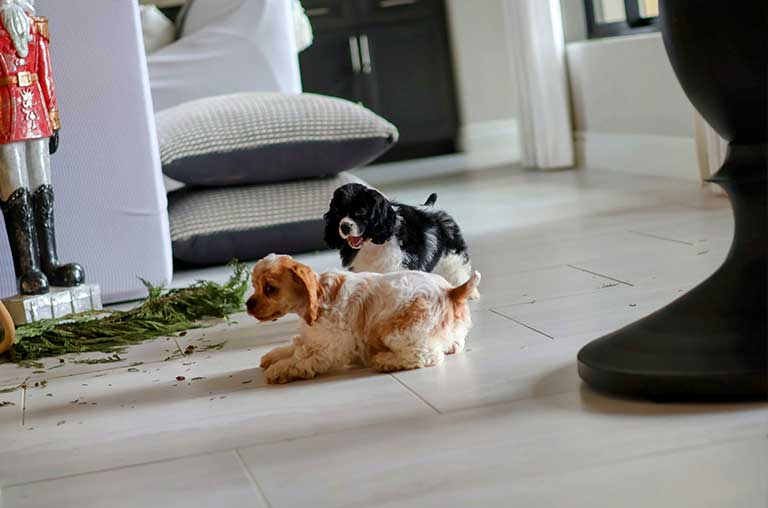
If you observe your dog sniffing food but not eating immediately for a long time. Initially, you can do the following –
- Observe your dog’s behavior
- Check the teeth and body of your dog
- See if there are any issues with the food
- Check the environment
- Re-examine your actions
Solution of Dog Sniffing Food But Not Eating
If your dog is sniffing food but not eating it, there could be several reasons why they are doing so. Here are some things you can do:
Check for Medical Issues
Before jumping to any conclusions, it’s important to rule out any medical issues that may be happening and your dog sniffing food but not eating. Dogs can suffer from dental, digestive, or other health problems that may make eating painful or uncomfortable. If your dog has not been eating for a few days, it’s time to schedule a visit with your veterinarian.
Evaluate their Diet
If your vet determines there are no underlying medical issues, it’s time to evaluate your dog’s diet. Some dogs are picky eaters and may simply not like the food they’re being offered. Consider switching to a different brand or flavor of dog food to get rid of the dog sniffing food but not eating the food situation.
It’s also important to ensure you’re feeding your dog the right amount of food. Overfeeding can conduct to obesity and other health problems.
Establish a Feeding Routine
Dogs thrive on routine, so establishing a regular feeding schedule can help encourage your dog to eat. Try to feed your dog at the same time every day, and remove their food bowl after 20-30 minutes, even if they still need to finish their meal. This can create a sense of urgency for your dog and encourage them to eat during mealtime.
Make Mealtime Fun
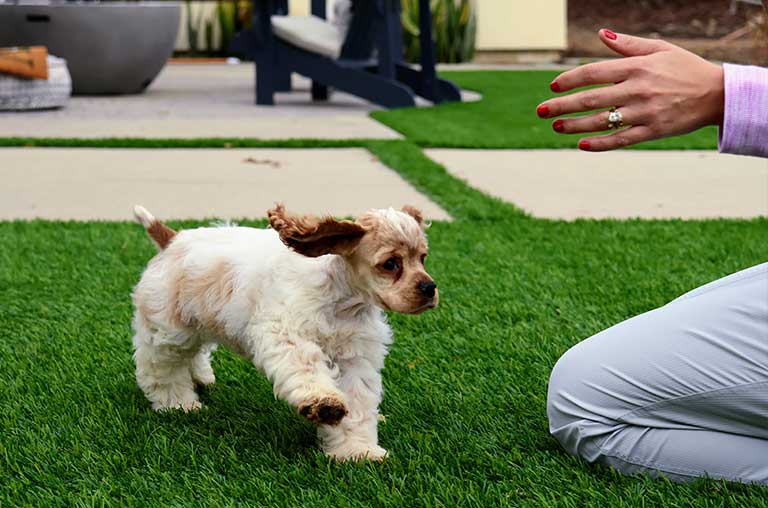
Some dogs lose interest in their food because they find mealtime boring. You can make mealtime more exciting by hiding small treats or pieces of food in their bowl. You can also use puzzle feeders or interactive toys to make mealtime more engaging for your dog.
Avoid Giving Treats Between Meals
Giving your dog too many treats or table scraps between meals can create a situation of a dog sniffing food but not eating. If you’re trying to encourage your dog to eat their meals, avoid giving them extra treats or food outside their regular feeding schedule.
Be Patient
It’s important to be patient when trying to solve a dog’s lack of appetite. It may take a few days or even weeks to establish a new routine and get your dog back on track with its eating habits. Remember to remain calm and positive; your dog will likely follow suit.
Create a quiet eating environment
Dogs can easily be distracted by noise and activities around them. Create a quiet eating environment for your dog to eat without any distractions.
Increase exercise
If your dog is not hungry, it may need more exercise to improve its appetite. Increase their exercise routine and see if that helps.
After following all these tips, if your dog continues to sniff food but does not eat, it is best to consult with a veterinarian to rule out any underlying health issues.
FAQ
1. Why is My Dog Not Eating But Still Acting Normal?
There could be several reasons, such as – your dog is already full, your dog could have a dental problem, he/she could be going through stress, may be suffering from illness, or maybe your dog is going through a change in diet.
2. Why Does My Dog Just Smell His Food?
The reason behind your dog sniffing food but not eating could be they do not like the food you have offered, maybe the food has expired, or it’s already rotten. Another reason could be that the dog is already full or only looking for treats.
3. When Should I Be Worried About My Dog Not Eating?
If you notice your dog isn’t eating and losing weight, then take it to the vet. If your dog has stopped eating for more than 2 days and it has diarrhea or vomiting issues, it is a sign that there might be an underlying health problem. Other signs to look for include excessive drooling, difficulty swallowing or pawing at the mouth.
4. What are the Signs of Upset Stomach in Dogs?
Loss of appetite, bloody diarrhea, severe vomiting, fever any of these signs could mean that your dog is experiencing a serious condition of an upset stomach.
5. How Do I Know If My Dog Has a Blockage?
A blockage in dogs is an obstruction in the digestive tract that prevents food, fluids, and waste from passing through normally. Blockages can occur anywhere from the esophagus to the rectum, and they can be caused by a variety of objects or materials that a dog may ingest, such as toys, bones, rocks, cloth, or hair. Some signs that your dog may have a blockage: Vomiting, diarrhea, constipation, loss of appetite, abdominal pain, or dehydration.
Wrapping Up
Dogs have an incredible sense of smell, and it’s not uncommon for them to sniff around food and other objects. However, if you notice your dog all of a sudden won’t eat his food, it could be a sign of a health problem, dental issue, or simply picky eating behavior. To address this behavior, you should consider a few strategies, including switching your dog’s diet, improving dental health, and working with a veterinarian to rule out any underlying medical conditions. Additionally, it’s important to avoid punishing your dog or forcing them to eat, as this can create anxiety and worsen the behavior. By being patient and trying different approaches, you can help your dog develop healthier eating habits and cope with dog sniffing food but not eating issues.
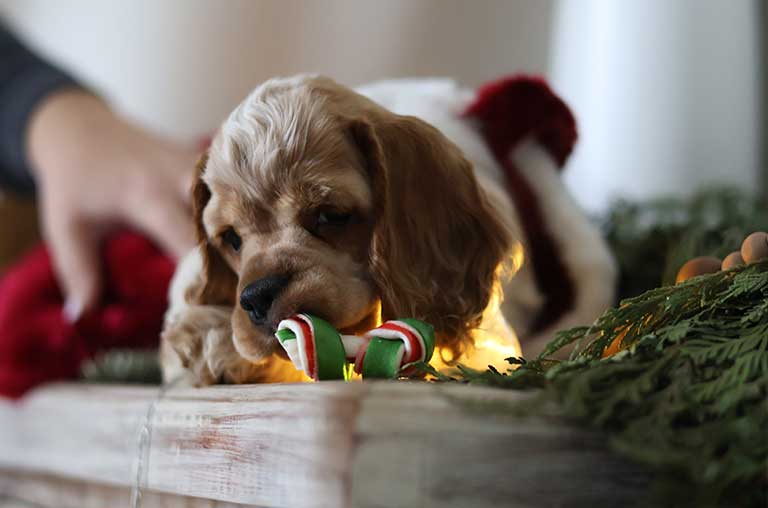
Leave A Comment